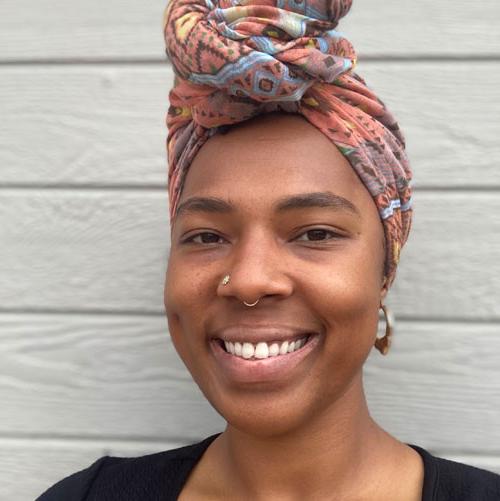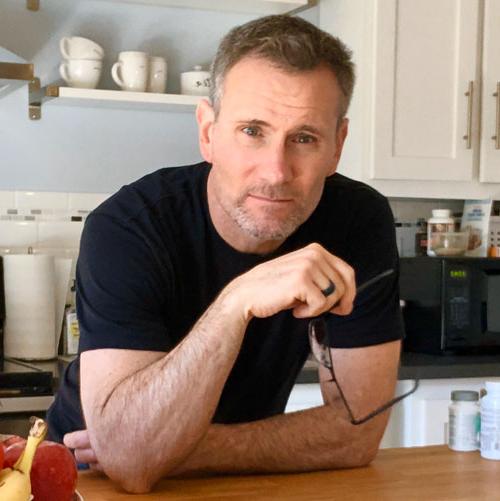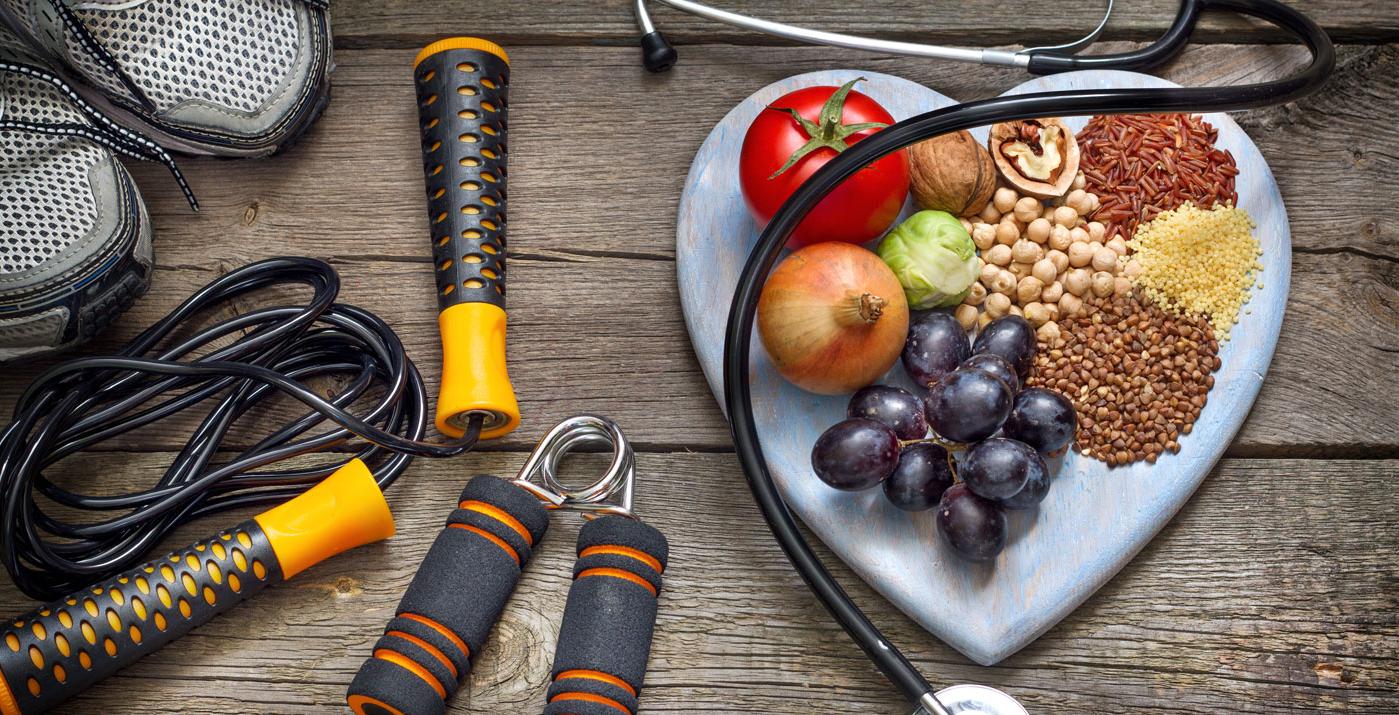About the Program
Lifestyle medicine is the evidence-based approach of using lifestyle interventions to prevent and treat many chronic diseases, improve outcomes and quality of life, tackle health disparities, and decrease healthcare costs.
Metropolitan State University of Denver is proud to offer the first Lifestyle Medicine Major and Minor at the bachelor’s level in the country. The major and minor can be completed fully online or through a combination of classroom and online courses.
The Bachelor of Science Major in Lifestyle Medicine provides students with competencies in lifestyle medicine, health navigation, and wellness coaching. Lifestyle medicine is the use of evidence-based lifestyle approaches, including healthful eating, physical activity, sleep, stress management, tobacco cessation, fostering relationships, emotional wellness, and environmental health. These approaches prevent and treat many chronic diseases, improve outcomes and quality of life, tackle health disparities, and decrease health costs. Throughout the major, themes of cultural competence, service, self-care, interdisciplinary collaboration, and whole-person health will be emphasized.
How will the Lifestyle Medicine program impact you?
The major prepares students to incorporate the principles of evidence-based lifestyle medicine in health related careers, prepares students to obtain related certifications, and positions them as leaders in addressing national health concerns. This major is also applicable to students wishing to enter graduate health professional schools; however other prerequisites will likely be necessary for admission. A minor is required.
Contact Us to Learn More!
 If you are interested in Lifestyle Medicine but have more questions, please contact us!
If you are interested in Lifestyle Medicine but have more questions, please contact us!
You can set up an advising appointment with Dr. Paris Prestridge by emailing at [email protected] .
You can also request an advising appointment on our Academic Advising Webpage.
Lifestyle Medicine Major, B.S.
The Lifestyle Medicine Major requires the following courses and electives. In addition to the courses listed below, many courses will require prerequisite courses prior to registration.
Summary of Major Requirements
Required Core Courses: 42 Credits
Required Elective Courses: 3 Credits
Senior Experience: 3 Credits
Total for Major: 48 Credits
Course Information
- COMM 2020 – Introduction to Health Communication Credits: 3
or
- HCM 3700 – Health Disparities in the U.S. Credits: 3
or
- SLHS 2990 – Introduction to Health Communication Credits: 3
- HCM 3150 – Health Care Organization and Management Credits: 3
- PUB 2000 – Community Health Worker Fundamentals Credits: 3
- PUB 4030 – Advanced Community Health Worker Credits: 3
- ITP 1000 – Health Career Foundations Credits: 3
- ITP 1500 – Dynamics of Health Credits: 3
- ESS 2700 – Wellness Coaching I Credits: 3
or
- ITP 2950 – Wellness Coaching I Credits: 3
- ITP 3450 – Dynamics of Disease Credits: 3
- ITP 3850 – Lifestyle Medicine Credits: 3
- ITP 4700 – Community Health Education and Lifestyle Medicine Credits: 3
- ITP 4800 – Lifestyle Medicine Across Gender and Lifespan Credits: 3
- RST 3530 – Healthy International Cooking Credits: 3
or
- ITP 2700 – Holistic Dimensions of Wellness Credits: 3
or
- ITP 3800 – Stress and Sleep: Impact on Health and Disease Credits: 3
or
- ESS 1030 – Fitness and Well-being Credits: 1-2
and
- ESSA 1870 – Stress Management Credits: 2
- NUT 2040 – Introduction to Nutrition Credits: 3
- ESS 4700 – Wellness Coaching II Credits: 3
or
- ITP 4400 – Wellness Coaching II Credits: 3
Choose 3 Credits:
- AGE 3800 – Long-Term Care: Managing Across the Continuum Credits: 3
- ESS 1440 – Stress Management Techniques Credits: 3
- ESS 3340 – Physiology of Exercise Credits: 4
- EXS 1020 – Resistance Training Techniques Credits: 3
- EXS 1640 – Physical Fitness Techniques and Programs Credits: 3
- HCM 3500 – Health Care Research Methods Credits: 3
- HON 3910 – Honors Colloquium Credits: 3
- HON 4950 – Senior Honors Thesis Credits: 3
- HON 4951 – Paired Senior Honors Thesis Credits: 1
- HSP 3220 – Conflict Resolution and Decision Making Credits: 3
- HSP 3470 – Counseling the Substance Abuser Credits: 4
- HSP 3550 – Intimate Partner Violence Credits: 3
- HSP 3560 – Motivational Interviewing Credits: 2
- HSP 3575 – Motivational Interviewing for Health Professionals Credits: 3
- HSP 4290 – Posttraumatic Stress Disorder and Trauma Informed Care Credits: 1
- ITP 2800 – Health, Society, and the Environment Credits: 3
- ITP 2820 – Anger In Men: A Whole Approach Credits: 3
- ITP 3000 – Men’s Health Credits: 3
- ITP 3100 – Health Education and Counseling Credits: 3
- ITP 3111 – Aging Warriors: Understanding the Health Issues of Aging Men Credits: 3
- ITP 3200 – Ethics in Health Care Credits: 3
- ITP 3700 – Physiology of Aging Credits: 3
- ITP 3810 – Men Across Cultures Credits: 3
- ITP 3911 – Fathers and Health: A Global Perspective Credits: 3
- ITP 4000 – Pediatric Holistic Health Credits: 3
- ITP 4100 – Women’s Holistic Health Credits: 3
- ITP 4300 – Botanical Pharmacology Credits: 3
- ITP 4600 – Clinical Pathophysiology Credits: 4
- ITP 4999 – Applied Learning with Lifestyle Medicine Credits: 3
- NUT 3040 – Nutrition Concepts and Controversies Credits: 3
- NUT 3050 – Concepts of Lifecycle Nutrition Credits: 3
- NUT 3200 – Nutrition and Sports Performance Credits: 3
- NUT 3350 – Global Nutrition and Health Credits: 3
- NUT 3400 – Nutrition and Weight Management Credits: 3
- NUT 3500 – Food Safety Credits: 3
- PSY 2120 – Brain and Behavior Credits: 3
- PSY 2150 – Positive Psychology Credits: 3
- PSY 2210 – Psychology of Human Development Credits: 3
- PSY 3410 – Health Psychology Credits: 3
- PSY 3440 – Cravings and Addictions Credits: 3
- PUB 1000 – Principles of Public Health Credits: 3
- PUB 3000 – Health Behavior Theory and Practice Credits: 3
- PUB 3010 – Community Health Survey, Assessment and Health Improvement Planning Credits: 3
- PUB 3020 – Introduction to Epidemiology in Public Health Credits: 3
- PUB 3030 – Essentials of Environmental Health in Public Health Practices Credits: 3
- PUB 4000 – Health Policy – Practice and Development Credits: 3
- PUB 4010 – Health Program Planning, Implementation, and Evaluation Credits: 3
- PUB 4020 – Peer Health Education- Field Experience Credits: 3
- RST 1550 – Food Fundamentals Credits: 3
- RST 3875 – Food Preservation Techniques Credits: 3
- SPS 4500 – Teaching Assistantship in the College of Professional Studies Credits: 3
- SWK 1010 – Introduction to Social Work Credits: 3
- SWK 1600 – Community Engagement and Civic Responsibility Credits: 3
- SWK 3010 – Social Work Practice with Children and Youth Credits: 3
- SWK 3030 – Social Work with Older People Credits: 3
- SWK 3080 – Social Work with Families Credits: 3
- SWK 3120 – Privilege, Oppression, and Power Credits: 3
- SWK 3150 – Social Work and Child Maltreatment Credits: 3
- SWK 3500 – Social Work Practice with LGBTQ People Credits: 3
- UA 2735 – Urban Vegetable Farming Credits: 3
- RST 3905 – Farm to Table Sustainability Credits: 3
- Any ESSA course may count for up to 4 credits of electives
- Or any ITP, HCM, HCPS, or PUB prefix course
Senior Experience: 3 credits
ESS 4950 – Community Coaching for Health Credits: 3
OR
ITP 4950 – Community Coaching for Health Credits: 3
Lifestyle Medicine Extended Major, B.S.
The Lifestyle Medicine Extended Major requires the following courses and electives. In addition to the courses listed below, many courses will require prerequisite courses prior to registration. A minor is not required.
Summary of Extended Major Requirements
Required Core Courses: 42 Credits
Required Elective Courses: 15 Credits
Senior Experience: 3 Credits
Total for Extended Major: 60 Credits
Course Information
- COMM 2020 – Introduction to Health Communication Credits: 3
or
- HCM 3700 – Health Disparities in the U.S. Credits: 3
or
- SLHS 2990 – Introduction to Health Communication Credits: 3
- HCM 3150 – Health Care Organization and Management Credits: 3
- ITP 1000 – Health Career Foundations Credits: 3
- ITP 1500 – Dynamics of Health Credits: 3
- ESS 2700 – Wellness Coaching I Credits: 3
or
- ITP 2950 – Wellness Coaching I Credits: 3
- ITP 3450 – Dynamics of Disease Credits: 3
- ITP 3850 – Lifestyle Medicine Credits: 3
- ITP 4700 – Community Health Education and Lifestyle Medicine Credits: 3
- ITP 4800 – Lifestyle Medicine Across Gender and Lifespan Credits: 3
- PUB 2000 – Community Health Worker Fundamentals Credits: 3
- PUB 4030 – Advanced Community Health Worker Credits: 3
- RST 3530 – Healthy International Cooking Credits: 3
or
- ITP 2700 – Holistic Dimensions of Wellness Credits: 3
or
- ITP 3800 – Stress and Sleep: Impact on Health and Disease Credits: 3
or
- ESS 1030 – Fitness and Well-being Credits: 1-2
and
- ESSA 1870 – Stress Management Credits: 2
- ESS 4700 – Wellness Coaching II Credits: 3
- or
- ITP 4400 – Wellness Coaching II Credits: 3
- NUT 2040 – Introduction to Nutrition Credits: 3
Choose 15 Credits:
- AGE 3800 – Long-Term Care: Managing Across the Continuum Credits: 3
- ESS 1440 – Stress Management Techniques Credits: 3
- ESS 3340 – Physiology of Exercise Credits: 4
- EXS 1020 – Resistance Training Techniques Credits: 3
- EXS 1640 – Physical Fitness Techniques and Programs Credits: 3
- HCM 3500 – Health Care Research Methods Credits: 3
- HON 3910 – Honors Colloquium Credits: 3
- HON 4950 – Senior Honors Thesis Credits: 3
- HON 4951 – Paired Senior Honors Thesis Credits: 1
- HSP 3220 – Conflict Resolution and Decision Making Credits: 3
- HSP 3470 – Counseling the Substance Abuser Credits: 4
- HSP 3550 – Intimate Partner Violence Credits: 3
- HSP 3560 – Motivational Interviewing Credits: 2
- HSP 3575 – Motivational Interviewing for Health Professionals Credits: 3
- HSP 4290 – Posttraumatic Stress Disorder and Trauma Informed Care Credits: 1
- ITP 2800 – Health, Society, and the Environment Credits: 3
- ITP 2820 – Anger In Men: A Whole Approach Credits: 3
- ITP 3000 – Men’s Health Credits: 3
- ITP 3100 – Health Education and Counseling Credits: 3
- ITP 3111 – Aging Warriors: Understanding the Health Issues of Aging Men Credits: 3
- ITP 3200 – Ethics in Health Care Credits: 3
- ITP 3700 – Physiology of Aging Credits: 3
- ITP 3810 – Men Across Cultures Credits: 3
- ITP 3911 – Fathers and Health: A Global Perspective Credits: 3
- ITP 4000 – Pediatric Holistic Health Credits: 3
- ITP 4100 – Women’s Holistic Health Credits: 3
- ITP 4300 – Botanical Pharmacology Credits: 3
- ITP 4600 – Clinical Pathophysiology Credits: 4
- ITP 4999 – Applied Learning with Lifestyle Medicine Credits: 3
- NUT 3040 – Nutrition Concepts and Controversies Credits: 3
- NUT 3050 – Concepts of Lifecycle Nutrition Credits: 3
- NUT 3200 – Nutrition and Sports Performance Credits: 3
- NUT 3350 – Global Nutrition and Health Credits: 3
- NUT 3400 – Nutrition and Weight Management Credits: 3
- NUT 3500 – Food Safety Credits: 3
- PSY 2120 – Brain and Behavior Credits: 3
- PSY 2150 – Positive Psychology Credits: 3
- PSY 2210 – Psychology of Human Development Credits: 3
- PSY 3410 – Health Psychology Credits: 3
- PSY 3440 – Cravings and Addictions Credits: 3
- PUB 1000 – Principles of Public Health Credits: 3
- PUB 3000 – Health Behavior Theory and Practice Credits: 3
- PUB 3010 – Community Health Survey, Assessment and Health Improvement Planning Credits: 3
- PUB 3020 – Introduction to Epidemiology in Public Health Credits: 3
- PUB 3030 – Essentials of Environmental Health in Public Health Practices Credits: 3
- PUB 4000 – Health Policy – Practice and Development Credits: 3
- PUB 4010 – Health Program Planning, Implementation, and Evaluation Credits: 3
- PUB 4020 – Peer Health Education- Field Experience Credits: 3
- RST 1550 – Food Fundamentals Credits: 3
- RST 3875 – Food Preservation Techniques Credits: 3
- SPS 4500 – Teaching Assistantship in the College of Professional Studies Credits: 3
- SWK 1010 – Introduction to Social Work Credits: 3
- SWK 1600 – Community Engagement and Civic Responsibility Credits: 3
- SWK 3010 – Social Work Practice with Children and Youth Credits: 3
- SWK 3030 – Social Work with Older People Credits: 3
- SWK 3080 – Social Work with Families Credits: 3
- SWK 3120 – Privilege, Oppression, and Power Credits: 3
- SWK 3150 – Social Work and Child Maltreatment Credits: 3
- SWK 3500 – Social Work Practice with LGBTQ People Credits: 3
- UA 2735 – Urban Vegetable Farming Credits: 3
- RST 3905 – Farm to Table Sustainability Credits: 3
- or any ITP, HCM, HCPS, or PUB prefix course
- any ESSA course may count for up to 4 credits of electives
Senior Experience: 3 credits
ESS 4950 – Community Coaching for Health Credits: 3
OR
ITP 4950 – Community Coaching for Health Credits: 3
Lifestyle Medicine Minor
The Lifestyle Medicine Minor requires the following courses and electives. In addition to the courses listed below, many courses will require prerequisite courses prior to registration.
Summary of Minor Requirements
Required Core Courses: 9 Credits
Required Elective Courses: 9 Credits
Total for Minor: 18 Credits
Course Information
- ITP 3850 – Lifestyle Medicine (Credits: 3)
- ITP 4700 – Community Health Education and Lifestyle Medicine (Credits: 3)
- ITP 4800 – Lifestyle Medicine Across Gender and Lifespan (Credits: 3)
Choose at least 9 Credits from the following (at least 3 hours must be upper division). Note: for ITP 2950/HPS 2700 & ITP 4400/HPS 4700 credit will only be given for one prefix: ITP or HPS
- AGE 3800 – Long-Term Care: Managing Across the Continuum Credits: 3
- COMM 2020 – Introduction to Health Communication Credits: 3
- ESS 1030 – Fitness and Well-being Credits: 1-2
- ESS 1440 – Stress Management Techniques Credits: 3
- ESS 2700 – Wellness Coaching I Credits: 3
- ESS 3340 – Physiology of Exercise Credits: 4
- ESS 4700 – Wellness Coaching II Credits: 3
- ESSA 1870 – Stress Management Credits: 2
- EXS 1020 – Resistance Training Techniques Credits: 3
- EXS 1640 – Physical Fitness Techniques and Programs Credits: 3
- HCM 3150 – Health Care Organization and Management Credits: 3
- HCM 3500 – Health Care Research Methods Credits: 3
- HCM 3700 – Health Disparities in the U.S. Credits: 3
- HON 3910 – Honors Colloquium Credits: 3
- HON 4950 – Senior Honors Thesis Credits: 3
- HON 4951 – Paired Senior Honors Thesis Credits: 1
- HSP 3220 – Conflict Resolution and Decision Making Credits: 3
- HSP 3470 – Counseling the Substance Abuser Credits: 4
- HSP 3550 – Intimate Partner Violence Credits: 3
- HSP 3575 – Motivational Interviewing for Health Professionals Credits: 3
- HSP 4290 – Posttraumatic Stress Disorder and Trauma Informed Care Credits: 1
- ITP 1000 – Health Career Foundations Credits: 3
- ITP 1500 – Dynamics of Health Credits: 3
- ITP 2700 – Holistic Dimensions of Wellness Credits: 3
- ITP 2800 – Health, Society, and the Environment Credits: 3
- ITP 2820 – Anger In Men: A Whole Approach Credits: 3
- ITP 2950 – Wellness Coaching I Credits: 3
- ITP 3000 – Men’s Health Credits: 3
- ITP 3100 – Health Education and Counseling Credits: 3
- ITP 3111 – Aging Warriors: Understanding the Health Issues of Aging Men Credits: 3
- ITP 3200 – Ethics in Health Care Credits: 3
- ITP 3450 – Dynamics of Disease Credits: 3
- ITP 3700 – Physiology of Aging Credits: 3
- ITP 3800 – Stress and Sleep: Impact on Health and Disease Credits: 3
- ITP 3810 – Men Across Cultures Credits: 3
- ITP 3911 – Fathers and Health: A Global Perspective Credits: 3
- ITP 4000 – Pediatric Holistic Health Credits: 3
- ITP 4100 – Women’s Holistic Health Credits: 3
- ITP 4300 – Botanical Pharmacology Credits: 3
- ITP 4400 – Wellness Coaching II Credits: 3
- ITP 4950 – Community Coaching for Health Credits: 3
- ITP 4999 – Applied Learning with Lifestyle Medicine Credits: 3
- NUT 2040 – Introduction to Nutrition Credits: 3
- NUT 3040 – Nutrition Concepts and Controversies Credits: 3
- NUT 3050 – Concepts of Lifecycle Nutrition Credits: 3
- NUT 3200 – Nutrition and Sports Performance Credits: 3
- NUT 3400 – Nutrition and Weight Management Credits: 3
- PSY 2120 – Brain and Behavior Credits: 3
- PSY 2150 – Positive Psychology Credits: 3
- PSY 3410 – Health Psychology Credits: 3
- PSY 3440 – Cravings and Addictions Credits: 3
- PUB 1000 – Principles of Public Health Credits: 3
- PUB 2000 – Community Health Worker Fundamentals Credits: 3
- PUB 3000 – Health Behavior Theory and Practice Credits: 3
- PUB 3010 – Community Health Survey, Assessment and Health Improvement Planning Credits: 3
- PUB 3020 – Introduction to Epidemiology in Public Health Credits: 3
- PUB 3030 – Essentials of Environmental Health in Public Health Practices Credits: 3
- PUB 4000 – Health Policy – Practice and Development Credits: 3
- PUB 4010 – Health Program Planning, Implementation, and Evaluation Credits: 3
- PUB 4020 – Peer Health Education- Field Experience Credits: 3
- PUB 4030 – Advanced Community Health Worker Credits: 3
- RST 1550 – Food Fundamentals Credits: 3
- RST 3530 – Healthy International Cooking Credits: 3
- RST 3875 – Food Preservation Techniques Credits: 3
- SPS 4500 – Teaching Assistantship in the College of Professional Studies Credits: 3
- SWK 1010 – Introduction to Social Work Credits: 3
- SWK 1600 – Community Engagement and Civic Responsibility Credits: 3
- SWK 3010 – Social Work Practice with Children and Youth Credits: 3
- SWK 3030 – Social Work with Older People Credits: 3
- SWK 3080 – Social Work with Families Credits: 3
- SWK 3120 – Privilege, Oppression, and Power Credits: 3
- SWK 3150 – Social Work and Child Maltreatment Credits: 3
- SWK 3500 – Social Work Practice with LGBTQ People Credits: 3
- UA 2735 – Urban Vegetable Farming Credits: 3
- RST 3905 – Farm to Table Sustainability Credits: 3
- ESSA Prefix Courses: up to 4 credits
Accreditation
Academic Accreditation is an assurance of the quality of an academic program. The Higher Learning Commission (HLC) is an independent corporation that was founded in 1895 as one of six regional institutional accreditors in the United States. HLC accredits degree-granting post-secondary educational institutions in the North Central region, including Colorado and 18 other states. The mission of the HLC is to serve the common good by assuring and advancing the quality of higher learning. For more information, please visit the Higher Learning Commission.
Wellness Coaching and Lifestyle Medicine Pathway
The Wellness Coaching and Lifestyle Medicine Pathway at Metropolitan State University of Denver is an Approved Health and Wellness Coach Training & Education Program by the National Board for Health and Wellness Coaching (NBHWC) and prepares students for the NBHWC certifying examination.
The pathway consists of the following courses:
- ITP 2950/HPS 2700 Wellness Coaching I
- ITP 4400/HPS 4700 Wellness Coaching II
- ITP 3850 Lifestyle Medicine
In addition to completing this pathway, students must also fulfill additional NBHWC requirements such as a submitting a coaching log and required documentation to the NBHWC to be able to take the examination.



Need Assistance?
Visit our Department Support Portal.Accepting applications, apply now!
Apply nowRequest information about our program
Request more informationCall or Email Us
303-615-1200
[email protected]
Visit Us
Central Classroom Building 220
1055 10th Street, Ste. 220, Denver, CO 80204
To get assistance, please visit our Department Support Portal.
Mailing Address
Department of Health Professions
Metropolitan State University of Denver
Campus Box 33, PO Box 173362
Denver, CO 80217-3362

